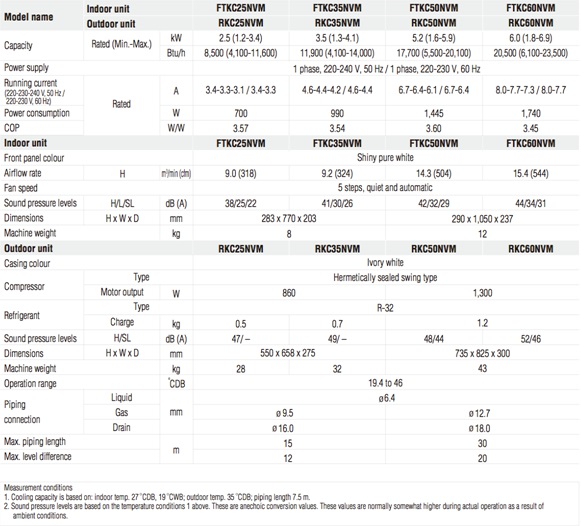Several people purchase an air conditioner that is Energy Saving Tips too large, thinking it will provide better cooling. Nevertheless, an oversized air conditioner is actually less effective and misuses energy at the same time. Air conditioners eliminate both heat and humidity from the air. A unit that is too large cools the room quickly, but will only remove some of the humidity, which leaves the room with a damp, clammy feeling. A properly sized unit removes humidity effectively as it cools. To figure out which size unit is best for your cooling needs, consider these following tips:
1. Determine the area (in square meters)
Using the computed area in square meters and the given chart, identify the accurate cooling capacity. Cooling capacity is measured in kilojoules per hour (kJ/hr).
3. Form any adjustments for the following conditions:
- Reduce the capacity by 10 percent once the room is heavily shaded
- Increase the capacity by 10 percent if the room is very sunny
- Add 633 kilojoules for each additional person if more than two people regularly occupy the room.
- Increase the capacity by 4,220 kilojoules if the unit is used in a kitchen.
Consider where the unit is being installed. If mounting an air conditioner near the corner of a room, take a unit that can send the airflow in the right direction.
Airconditioning Maintenance Tips
Refrain from sharing the aircon’s power point
with any other electrical devices.
Clean the aircon casing with a soapy cloth,
rinse, and wipe dry.
Avoid using water warmer than 50°C to prevent
casing deformation or discoloration.
- Strip off dirt from the filter by either tapping it gently or using a vacuum cleaner on it.
- Remove the dirt from the filter and wash it thoroughly using clean water.
- Shake off the water on the filter and leaving it on direct sunlight to dry.
- Make sure that the filter is appropriately mounted by following the markings when reinstalling the aircon.
- Refrain from immersing the air filter in water warmer than 40°C as this may deform the filter.
- Avoid wiping your aircon with chemicals such as gasoline, benzene or paint thinners.
- Avoid spraying insecticide on it, as this could cause damage to the aircon or casing discoloration.
Source:
Department of Energy, https://www.doe.gov.ph/doe_files/pdf/Researchers_Downloable_Files/Brochures/Properly_Sized_Room_Air_COnditioners.pdf












